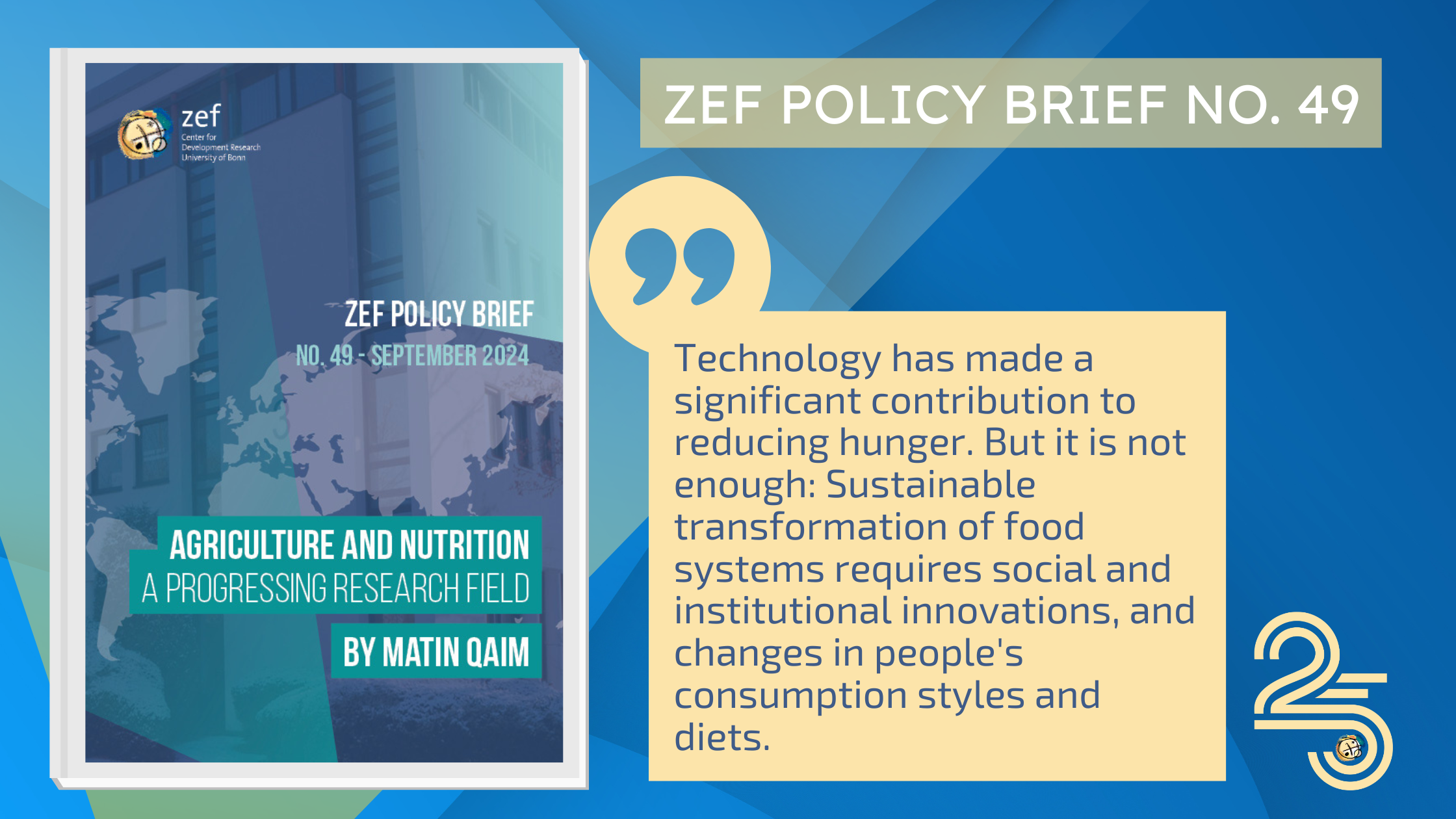Agriculture and nutrition, nowadays often jointly referred to as “food systems”, play a major role in many dimensions of sustainable development.
Talking about food systems
Agriculture and nutrition, nowadays often jointly referred to as “food systems”, play a major role in many dimensions of sustainable development. Close to 80% of the world’s poor and undernourished people live in rural areas, where most of them depend on agriculture, livestock husbandry, and fisheries for their livelihoods. Hence, improving agriculture has to be a major component of any broader strategy to reduce hunger and poverty.
Outlook for research and policy
There is widespread consensus that, in order to make food systems more sustainable, profound changes at many levels and in all world regions are required. However, there are still knowledge gaps of what types of changes can be most effective in different contexts and how these changes can be implemented efficiently and fairly. ZEF will continue and intensify its food systems research to address these knowledge gaps.
Recommendations
- Agricultural development, nutrition, human health, and environmental health need to be addressed jointly, as there are many potential synergies and tradeoffs.
- The small-farm sector needs particular attention and support. Smallholder subsistence farming must not be romanticized, though: Improving market access is key.
- Technology has contributed to reducing hunger and continues to play a crucial role for improving nutrition and making food systems more sustainable.
- But technology alone will not suffice: Sustainable food systems transformation also requires social and institutional innovations and changes in people’s consumption styles and choices.
Read the full text in ZEF Policy Brief no. 49 on Agriculture and Nutrition by Matin Qaim, ZEF-Director, Head of ZEF’s Division Economic and Technological Change, Schlegel-Professor at Bonn University’s Faculty of Agriculture.



Leave a Reply